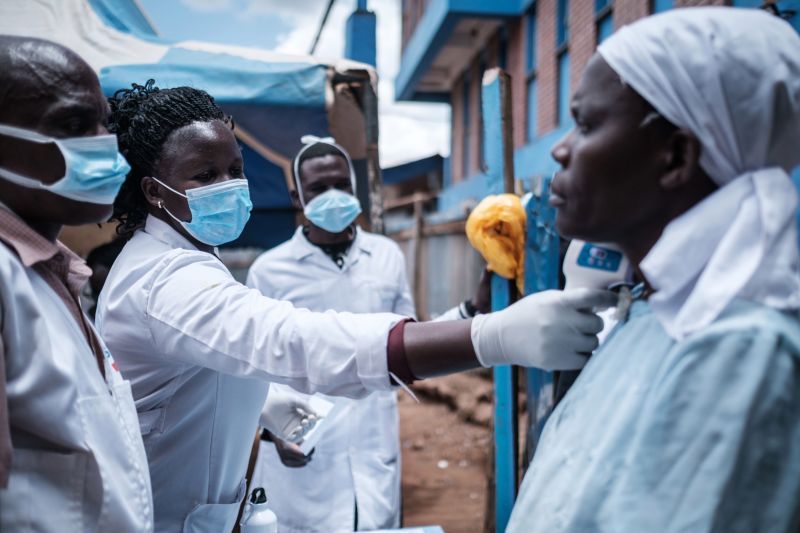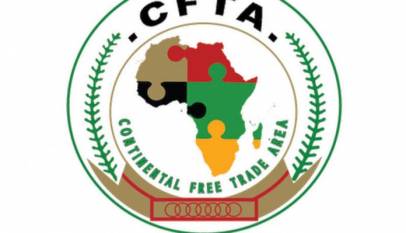OP-ED | Africa is bracing for a head-on collision with coronavirus, By Landry Signé and Ameenah Gurib-Fakim
As the pandemic reaches the continent, countries from Morocco to Malawi are facing a health crisis and an economic shock

Now that almost all of Africa’s 54 countries are reporting cases of the new coronavirus, one thing is certain: The pandemic will have drastic consequences in Africa, especially in the many countries that still have poor public health infrastructure and weak social welfare systems. For African economies, the shock will result in a drastic loss of revenues and slower economic growth. However, just as it survived Ebola, the continent will recover well from the coronavirus crisis—if its leaders act boldly now and the international community provides help where it is urgently needed.
Belatedly, some African countries have instituted measures to prevent the spread of the coronavirus within their borders. Countries such as South Africa, Kenya, Ghana, and Gabon have banned flights from affected countries, while Morocco has suspended all international travel. Rwanda, Mali, and the Democratic Republic of the Congo have added quarantine measures for travelers from countries affected by the outbreak. South Africa plans to erect a fence on its border with Zimbabwe to keep out potentially infected migrants.
As much as it is a crisis of public health, the pandemic threatens to batter Africa’s economies, especially the countries and sectors dependent on trade. A recent report from the United Nations Economic Commission for Africa estimated that the continent could lose up to 1.4 percentage points of GDP growth as a result of the pandemic—surely a much too conservative figure given the massive destruction of trade and economic activity around the world.
Already hit by the crash in oil prices, African countries including Angola and Nigeria that export oil could together lose up to $65 billion in income. Additional health spending on the pandemic is expected to reach $10.6 billion across Africa. Brookings estimates to up to 2.1 percentage points in lost GDP growth for sub-Saharan Africa if the pandemic and global disruptions are severe and endure.
Even as Africa is still bracing for the full effect of the pandemic, it has already been hit by collapsing trade and broken supply chains. Many African countries are highly dependent on exports to China—in particular Angola, South Africa, and Congo, but also South Sudan, Namibia, Kenya, and Rwanda. The countries that will be hit the hardest are the resource-rich economies whose oil and other commodities are primarily sold to China. Chinese purchases account for 95 percent of all of South Sudan’s exports, for example, 61 percent of Angola’s, and 58 percent of Eritrea’s. These countries will be devastated by the collapse in Chinese trade.
A drop in China’s oil demand by at least 20 percent combined with the crash in oil prices has already affected exports. As of March 4, about 70 percent of the April-loading cargoes of crude oil from Angola and Nigeria were still unsold, and other African oil exporters such as Gabon and the Republic of Congo also have difficulty finding buyers. As a result, the International Monetary Fund has lowered projected GDP growth in Nigeria from 2.5 percent to 2 percent. South Sudan, which the IMF expected to be the fastest-growing country in the world—with 8.2 percent GDP growth in 2020—is unlikely to achieve this performance given its dependence on crude oil exports to China.
Imports no longer arriving in African ports are also causing pain and disruption. In South Africa, the drop in imports and resulting shortages have led to a spike in inflation, which recently reached a 17-month high. In Ghana, shortages of some basic consumer goods imported from China have led to price spikes exceeding 100 percent for some products, including food.
To reverse the situation, some countries such as Rwanda are imposing fixed prices for basic food items such as rice and cooking oil. Small importers, traders, and consumers are also seriously affected in Nigeria, Uganda, Mozambique, and Niger, where a large number of poor people earn their livelihood trading Chinese products such as textiles, electronics, and household goods.
Crashing even worse is tourism, a major source of revenue for many African economies. Approximately 67 million tourists visited Africa in 2018, and the industry supports around 24.3 million jobs on the continent and earns about 8.5 percent of GDP. The worst-hit countries include tourist hotspots such as Seychelles, Cape Verde, Morocco, Mauritius, and many others. South Africa, another popular destination, has canceled 162 international and regional flights between March 18 and the end of the month due to plummeting demand and travel restrictions due to the coronavirus.
What makes the pandemic even more painful is that it aggravates previous economic strains — including the disruption in global trade due to U.S.-China trade tensions, the effect of Brexit on supply chains and financial flows, the decline in the price of industrial commodities such as copper, and the oil price war between Russia and Saudi Arabia.
But it’s not just trade and travel restrictions that are hitting African economies. The coronavirus outbreak will strain already weak social security systems. Besides health, nutrition is also a critical area, especially in poorer countries. Depending on the contagion rate, many sectors of the economy could be paralyzed—not just external trade and tourism, but the domestic sectors of the economy as well.
Health care systems are incredibly weak in many nations, with little preparedness for epidemics—as illustrated by the fact that until recently, few countries were able to offer widespread testing for the new virus. Some countries have strengthened their emergency preparedness since the 2014-2016 Ebola outbreak and are now in a relatively better position to deal with the coronavirus. Yet most African countries have not learned enough from the Ebola crisis, which resulted in a GDP loss of 13.7 to 18.7 percent per year between 2014 and 2017 in Liberia alone.
An appropriate response will require mobilizing exceptional resources to contain and manage the outbreak. However, most African countries, especially those where the state is already fragile or where a debt crisis may be looming, have low levels of tax revenues, weak institutions, and limited government effectiveness. They will now face decreasing revenues combined with the need for increased spending for tests, treatment including medication and equipment, and other measures to support the population.
Fragile and conflict-affected countries will need special support from multilateral institutions and bilateral partners in order not to be left behind, as they cannot handle this emergency alone. Because the virus spreads across borders, not helping African countries end the pandemic will ultimately have negative consequences for the entire world, not just the affected country.
Another reason speedy help is essential is the precarious state of many countries’ public finances. One-third of African countries are either already facing a debt crisis or at high risk of one. Given many countries’ high dependence on Chinese loans that they will now have difficulty repaying, the coronavirus crisis is likely to substantially expand Chinese power in Africa as Beijing renegotiates these loans to its advantage.
Just as it survived Ebola, Africa will survive the coronavirus crisis, and the continent’s dynamic economy will recover well. But to accelerate the recovery, bolder leadership is necessary. More countries must follow Morocco’s example in implementing a total travel ban and should adopt the strictest containment strategies. They should develop special social protection initiatives and targeted interventions addressing the immediate needs of the most vulnerable, given the threadbare state of most social welfare systems in Africa.
Without alternative resources to survive and care for their families, citizens may not comply with self-quarantine measures, massively increasing the risk that the coronavirus will spread like wildfire. But there is an even stronger reason for hope. As has been the case in the countries that handled Ebola effectively, this crisis will contribute to building the capacity and preparedness of African countries for future pandemics.
This outbreak is also bolstering the case for increased resilience by unlocking Africa’s business potential. Africa must finally accelerate implementation of the African Continental Free Trade Area, which aims to boost intra-African trade, industrialization, and economic diversification. This will make African countries less vulnerable to economic shocks and more resilient to global crises such as the coronavirus pandemic.
Landry Signé is a senior fellow at the Brookings Institution and a professor at Arizona State University’s Thunderbird School of Global Management while Ameenah Gurib-Fakim was the president of Mauritius from 2015 to 2018. This opinion article was originally published on Foreign Policy; the views expressed in it are those of the authors – they do not necessarily reflect African Newspage’s editorial policy.












